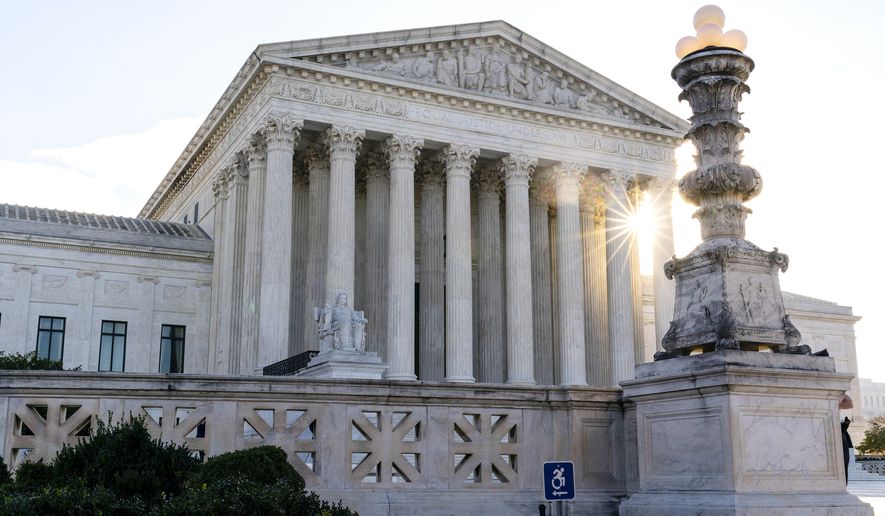The ongoing battle on the part of Christian artists and entrepreneurs to legally refuse business they contend would force them to violate their faith is back at the Supreme Court.
Lorie Smith, a Colorado web designer who will have her case heard during the court’s 2022 term, argues that the Colorado Anti-Discrimination Act forces her to create websites that celebrate same-sex marriages, which violates her faith.
Her case comes four years after a Christian baker from Colorado also took his First Amendment fight to the high court after refusing to bake a wedding cake for a same-sex wedding.
Ms. Smith said she observed Mr. Phillips’ more-than-a-decade-long legal battle, but knew she couldn’t live in fear of the government punishing her for her faith.
Like Mr. Phillips, she’s also faced threats for challenging the law.
“I knew I couldn’t live in fear,” she told reporters in Washington, D.C., on Wednesday. “I am simply asking for the freedom for all of us to speak consistently with our beliefs.”
SEE ALSO: Texas asks Supreme Court to reject tech groups’ opposition to new social media law
The same state regulation is at issue in Ms. Smith’s challenge. Her 303 Creative is based in Denver and is subject to Colorado’s public accommodations law that is designed to protect certain groups from discrimination in business settings. One such group is LGBTQ people.
At least 29 states have added protection for LGBTQ individuals into their public accommodation laws — but some have protected speech from government interference, according to Ms. Smith’s legal team.
Under the Colorado law, Ms. Smith claims she is unable to make a statement on her website about her view that marriage is only between a man and a woman.
A federal appeals court ruled against Ms. Smith, saying the state of Colorado can regulate a business’s speech because it has an interest in ensuring equal access.
Ms. Smith said she loves using her talents to shape messages for her clients — so long as the messages do not violate her values.
“I do believe God has chosen me to represent him,” she said. “Everything I do is consistent with my faith and running my business is a part of that.”
Colorado Attorney General Phil Weiser, though, insists companies cannot discriminate.
“The U.S. Supreme Court has consistently held that anti-discrimination laws, like Colorado’s, apply to all businesses selling goods and services. Companies cannot turn away LGBTQ customers just because of who they are. We will vigorously defend Colorado’s laws, which protect all Coloradans by preventing discrimination and upholding free speech,” he said earlier this year when the high court took the case.
A date for oral arguments in the legal battle has not yet been scheduled, but Kristen Waggoner, an attorney with Alliance Defending Freedom representing Ms. Smith, said they expect the justices to hear the case in October.
In 2018, the justices sided with a Christian baker, Jack Phillips, in the case Masterpiece Cakeshop v. Colorado Civil Rights Commission, saying the state did not give him a fair hearing when he refused to bake a custom wedding cake for a same-sex couple based on his religious beliefs. Mr. Phillips was also a client of Ms. Waggoner.
The ruling was a narrow one, essentially ordering Mr. Phillips’ legal battle to get a fresh review in lower courts.
The justices in that dispute addressed free exercise of religion — not free speech rights, which is the focus with Ms. Smith’s case.
Ms. Waggoner said she hopes Ms. Smith’s lawsuit will “bring justice to this injustice.”
• Alex Swoyer can be reached at aswoyer@washingtontimes.com.




Please read our comment policy before commenting.